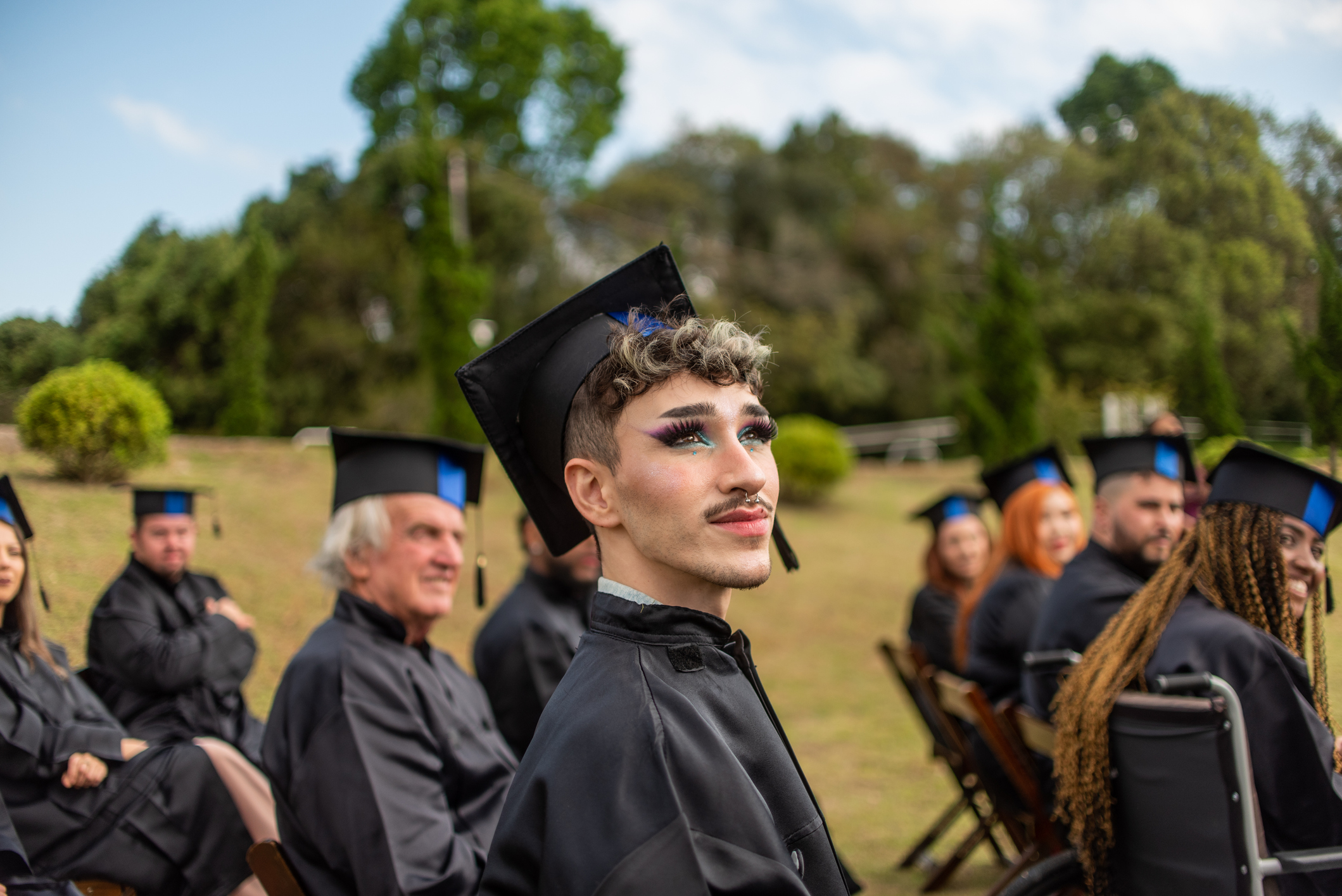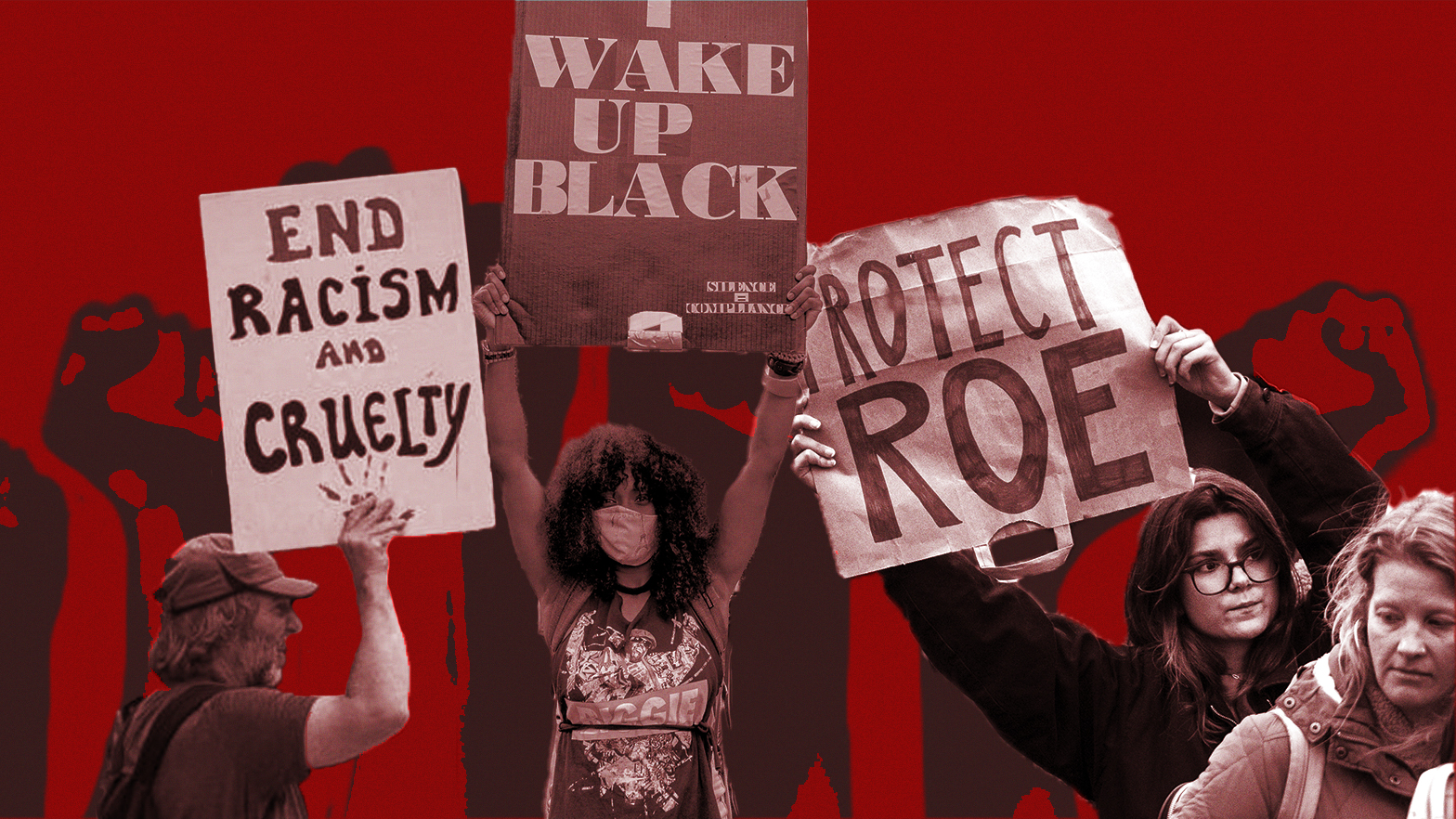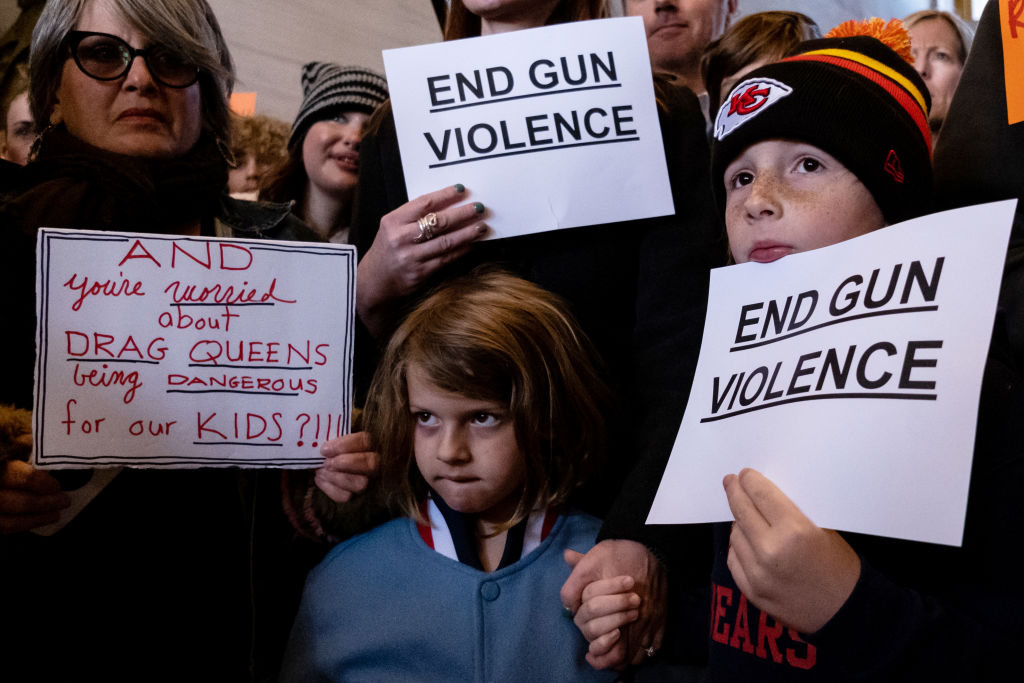The prospective student college tour as propaganda platform.
Revolution Deniers

A response to Christopher Rufo’s critics, both serious and unserious.
After reading Christopher Rufo’s America’s Cultural Revolution—with considerable satisfaction, as my review would suggest—I waded into those critical responses generated by his work. Some responses I saw were nothing more than political smears. Others were in the form of notes that I received from respectable scholars who didn’t find what they were looking for in Rufo’s book. For want of a better division, I am grouping these responses into two categories: the unserious and the serious.
The unserious responses seem ideologically driven; they represent an effort to reduce Rufo to a GOP hack who wrote a “polemic” that had unfortunate ripple effects. Some leftist critics characterize Rufo as a useful polemicist for the Right, although not a true historical scholar—certainly not of the same stature as Ibram X. Kendi or the authors of the 1619 Project. Vox describes Rufo as a dangerous “right-wing activist” whose book is designed to turn the U.S. into an “authoritarian” society on the model of Orban’s Hungary. The Guardian disputes Rufo’s premise that a cultural revolution has occurred in this country. Indeed, we are assured Rufo is only pretending that the cultural Left has taken over our universities, public administration, or media.
It seems to these leftist critics that what Rufo is arguing is delusional. His more generous critics on the Left, however, explain that he may not be quite “the inciter” of right-wing violence, “fueling the fires of cultural war,” that he is made to seem in the New York Times. According to The New Yorker, he is nothing more than a sensationalist who craves attention from his right-wing following. And of course, one shouldn’t ignore Rufo’s close association with Governor Ron DeSantis in Florida, whom he is urging to remove CRT and other progressive educational material from school curricula. Rufo, we are led to believe, has invented his narrative about cultural revolution at least partly to justify Governor DeSantis’s undue interference with academic affairs.
Those who make these complaints are themselves in denial about major changes that have taken place in the U.S. and other Western countries, and which have had the effect of subverting traditional cultural and social institutions and severely straining what remains of our one-time republican constitutional government. Arguing with these deniers may bring the same result as my one-time efforts to convince leftist associates that the Soviet Union under Stalin actually murdered people and had not become a workers’ paradise. Those who have deep investments in cataclysmic social experiments are usually not open to taking account of countervailing evidence. In the case of the current woke Left, as Rufo shows in his book, many of its progenitors were driven by utter revulsion for bourgeois institutions and traditional family life; those who are attacking him for underlining such details are unfortunately committed to advancing exactly the changes he documents.
Rufo’s more serious critics include Thomas Powers, the author of a massive tome on the antidiscrimination regime and a recent correspondent of mine. According to Powers and others with whom I have been in touch, Rufo may be overgeneralizing when he describes his cultural radicals as Marxists. In the process he slights the non-Marxist sources of the government’s war against discrimination. According to Powers, numerous antidiscrimination warriors both inside and outside government before and during the 1960s urged a concerted campaign to wipe out the cultural and emotional sources of discrimination. This crusade assumed an intense and even worshipful dimension before those Marxist radicals discussed by Rufo took over the culture.
Since I have made some of the same arguments as those of Powers—to wit, that wokeness and Marxism are not the same thing, and that the antidiscrimination regime in the U.S. was not first created by cultural radicals in the 1960—it might be asked how I differ from these critics in my assessment of Rufo’s study. It seems to me that Rufo does not categorize his subjects as mere Marxists. He fully understands they evolved into something culturally far more radical, for which even the term “cultural Marxists” would be an inadequate description. Rufo’s subjects and their numerous followers and funders evolved into antiwhite racial revolutionaries and/or nihilistic feminists.
Pretexts and Causes
At the end of the day, Marxist-Leninism is not an adequate designation for what has become a rebellion against civilization itself, and I doubt Rufo would disagree. Rufo reminds us that even the culturally leftist Critical Theorist Theodor Adorno was shocked by the degree to which Marcuse radicalized himself in the last ten years of his life. Unlike the contemporary Left, the Frankfurt School, at least its first generation, viewed homosexuality as a form of deviance. Unlike America’s woke Left, moreover, Marxist-Leninist governments do not celebrate LGBT. In fact, they often persecute homosexuals and even consign them to prison or to concentration camps as decadent bourgeois. Rufo is certainly aware of these differences and never identifies his subjects as generic Marxists nor confuses them with the founders of the Frankfurt School. What he shows is that most of his subjects viewed themselves as being in some sense Marxists and stuck to that self-definition.
Equally important, nowhere does Rufo claim to have spoken the last word about what has happened in this country since the 1960s. He is not offering an all-inclusive explanation for a portentous turning point in our history. Rather he gives us a piece of a larger historical picture. Greek historians who recounted monumental wars, starting with Thucydides, constructed a complex theory of causation. They differentiated remote beginnings from immediate causes, and they understood that those historical actors whom they depicted would come up with pretexts (prophaseis) to paint their wars in favorable colors. The Guardian, The New Yorker, and the New York Times provide pretexts of their own when they minimize the cultural radicalization that has taken place since the 1960s. This denial of course is different from honestly recognizing the mind-boggling cultural changes that are now besetting us.
Scholars may differ about causes or beginnings, but these differing starting points do not necessarily exclude each other. What Jesse Merriam writes about judicial attempts to create an antidiscrimination regime, what Christopher Caldwell tells us about expanding entitlement programs, what Powers documents about the efforts of government advisors and other public figures to change the mindset of discriminators, and what I myself have published about the politics of guilt and the antifascist mentality, all fit together with Rufo’s scholarship. Historical reconstructions are necessarily synthetic, and those who contribute to them should understand the value of the light that others are throwing on a shared area of research.
The fact that Rufo is trying to mitigate the effects of the cultural revolution he examines as a government advisor, and as a board member of New College, which is part of the Florida state university system, is entirely to his credit. The Guardian quite predictably depicts this effort at holding the line against the Left as a plan to recast Florida education in a “right-wing mold.” But there have been other critics of Rufo’s engagement. One of his less conventional critics, writing in defense of “the politics of ‘whiteness,’” complains that he is wasting his time by trying to make piecemeal changes. Rufo should engage the woke menace by appealing to white consciousness against the antiwhite Left. I have no idea how such an undertaking could succeed, since the Left’s most embattled cultural warriors here and in other Western countries are predominantly white. That is another aspect of our cultural radicalization which warrants critical attention: why so many white people are trying to destroy their own race, if that is indeed their intention.
The difficulty for Rufo and DeSantis is that whatever they do, however minimal, in trying to hold back cultural radicals will elicit hysterical attacks from the mass media. Every time the woke Left assaults our sanity, the resulting pushback results in the dissenters being compared to Nazis. Developing theories of resistance may be a necessary sequel to the controversial work that Rufo has already published.
The American Mind presents a range of perspectives. Views are writers’ own and do not necessarily represent those of The Claremont Institute.
The American Mind is a publication of the Claremont Institute, a non-profit 501(c)(3) organization, dedicated to restoring the principles of the American Founding to their rightful, preeminent authority in our national life. Interested in supporting our work? Gifts to the Claremont Institute are tax-deductible.
The counter-universities defying wokeness in higher education.
The American ideal of self-government is increasingly inapplicable to our culture.
The communist history of using children to forward political goals.
Don’t be misled by peaceful protest.
“Decolonization” is a cynical scam.






